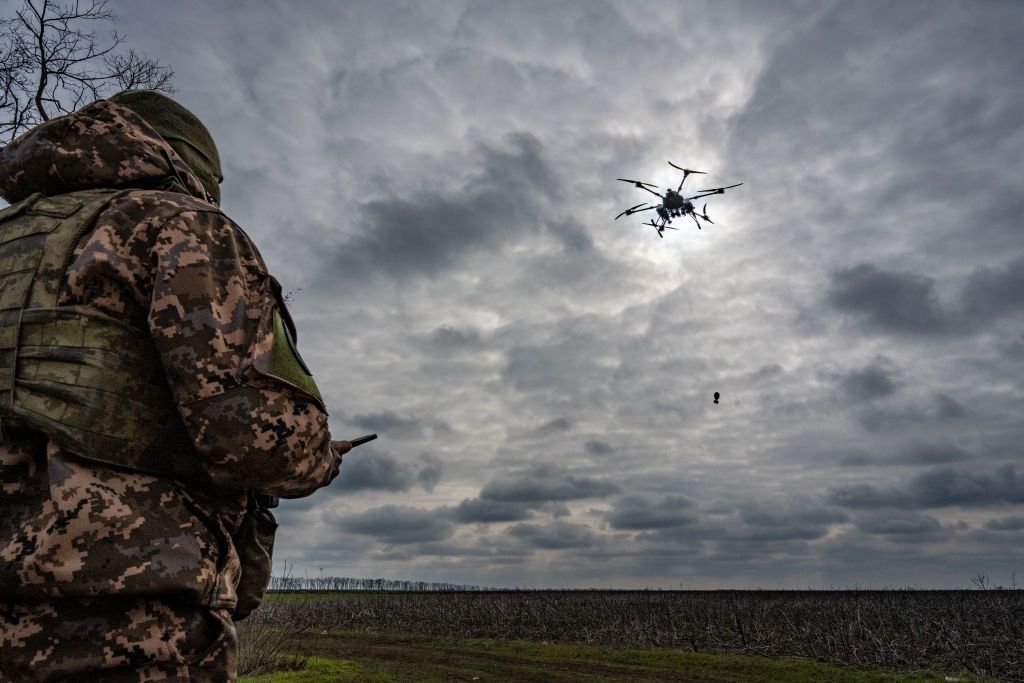Fires broke out at energy and fuel facilities in Russia’s Smolensk Oblast following a Ukrainian drone attack, according to Governor Vasily Anokhin on April 24. The attack reportedly caused fires at facilities in the region’s Smolensk and Yartsevskyi districts, with no casualties reported. Ukrainian forces have launched a series of drone strikes targeting Russia’s oil industry in recent weeks, including a large-scale attack on April 20 that started a fire at a fuel storage tank in Smolensk Oblast. The strikes have drawn criticism from U.S. officials, who fear the potential impact on the global energy market.
President Volodymyr Zelensky defended Ukraine’s use of weapons in retaliatory strikes on Russian oil refineries, asserting that Kyiv has the right to defend itself. In response to the attacks, the U.S. is reportedly preparing a $1 billion military aid package for Ukraine. Additionally, Greece is said to be preparing to provide Ukraine with at least one Patriot missile defense system, possibly two. These developments come amid ongoing conflict in Ukraine, with reports of Russian forces using chemical weapons to storm the town of Ocheretyne. The situation in the region remains difficult, with Ukraine suspending consular services in Russia.
The use of drones in attacks on energy infrastructure highlights the intensifying conflict between Ukraine and Russia, with both sides employing military tactics to gain the upper hand. Russia’s energy facilities have become a major target for Ukrainian forces, potentially impacting the country’s oil production and supply chains. The U.S. has expressed concern over Ukraine’s actions, emphasizing the need to avoid disrupting the global energy market. Despite criticism, President Zelensky has defended Ukraine’s right to defend itself against Russian aggression with retaliatory strikes.
The escalating violence in Ukraine has led to a humanitarian crisis, with civilian casualties and displacement increasing as the conflict persists. Both sides continue to engage in military operations, making it difficult to achieve a peaceful resolution. The international community remains divided on how to address the situation, with some countries providing military support to Ukraine while others call for diplomatic solutions. The use of chemical weapons by Russian forces has further heightened tensions, prompting condemnation from global leaders.
The conflict in Ukraine also has broader implications for regional stability and security, with the potential for the situation to escalate into a wider regional conflict. The involvement of external actors, such as the U.S. and Greece, in providing military assistance to Ukraine adds another layer of complexity to the conflict. The use of drones and other advanced military technologies in the fighting underscores the evolving nature of modern warfare, with both sides adapting their tactics to gain strategic advantage. The situation remains fluid, with the risk of further escalation and destabilization in the region.
Efforts to reach a ceasefire and negotiate a peaceful resolution to the conflict have so far been unsuccessful, with both sides showing little willingness to compromise. The continued violence and humanitarian impact of the conflict underscore the urgent need for a diplomatic solution to end the fighting and prevent further suffering. The international community must work together to address the root causes of the conflict and find a sustainable path to peace in Ukraine. By supporting a peaceful resolution and working towards reconciliation, the global community can help alleviate the suffering of civilians and create a more stable and secure future for the region.


